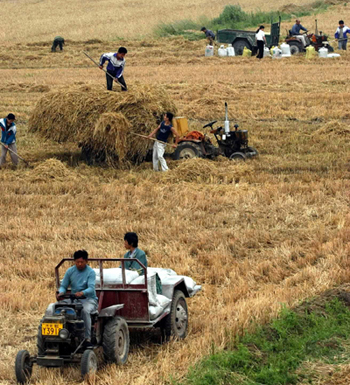| Tools: Save | Print | E-mail | Most Read |
| China Questions And Answers |
| Adjust font size: |
Q: After experiencing a decade-long turmoil of the "Cultural Revolution," China had to start all over again with its economy. When China initiated its economic reforms in 1978, why did the country first start the reforms in rural areas? What were the considerations at that time? A: China is a big agrarian country with a farming population that constituted more than 80 percent of the nation's total. The biggest challenge the country faced in the late 1970s was to provide enough food for over 900 million people. The revival and development of agriculture, especially grain production, was of vital importance to social stability. Secondly, the common approach to national economy is to develop agriculture first, and then the light industry and the heavy industry. The fundamental role agriculture plays in China's economic development decided that the reforms had to start from rural areas. A healthy agriculture would not only provide adequate food for the population but also stable supply of raw materials for the light industry, thus paving the way for rehabilitation and eventual development of the overall national economy. Land is the basic production material in agricultural production, as well as the most reliable life security for farmers. Since all the land in China is owned by the State, the main content of the rural reforms of the late 1970s was to give the management right of land to individual farming households, letting farmers themselves decide what and how much to grow on their contracted land. The reform effectively put an end to the 20-plus-year system of "people's communes", under which farm land was supposed to be "collectively" managed, but in fact was always managed by commune leadership who made final production decisions. The reform greatly mobilized the enthusiasm of farmers, spurred productivity, which, combined with good weather conditions, pushed agricultural production to an unexpected historic high. The country reaped consecutive bumper grain harvests in the 1980s and, as a result, the living standards of farmers improved greatly.
|
| Tools: Save | Print | E-mail | Most Read |
 |
| Related Stories |
|
Product Directory China Search |
Country Search Hot Buys |
